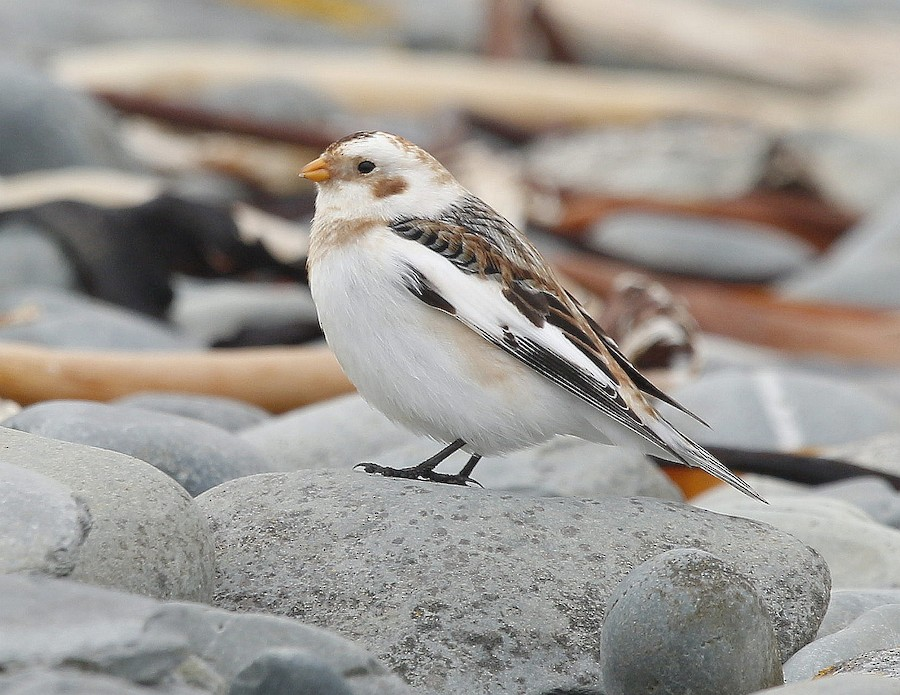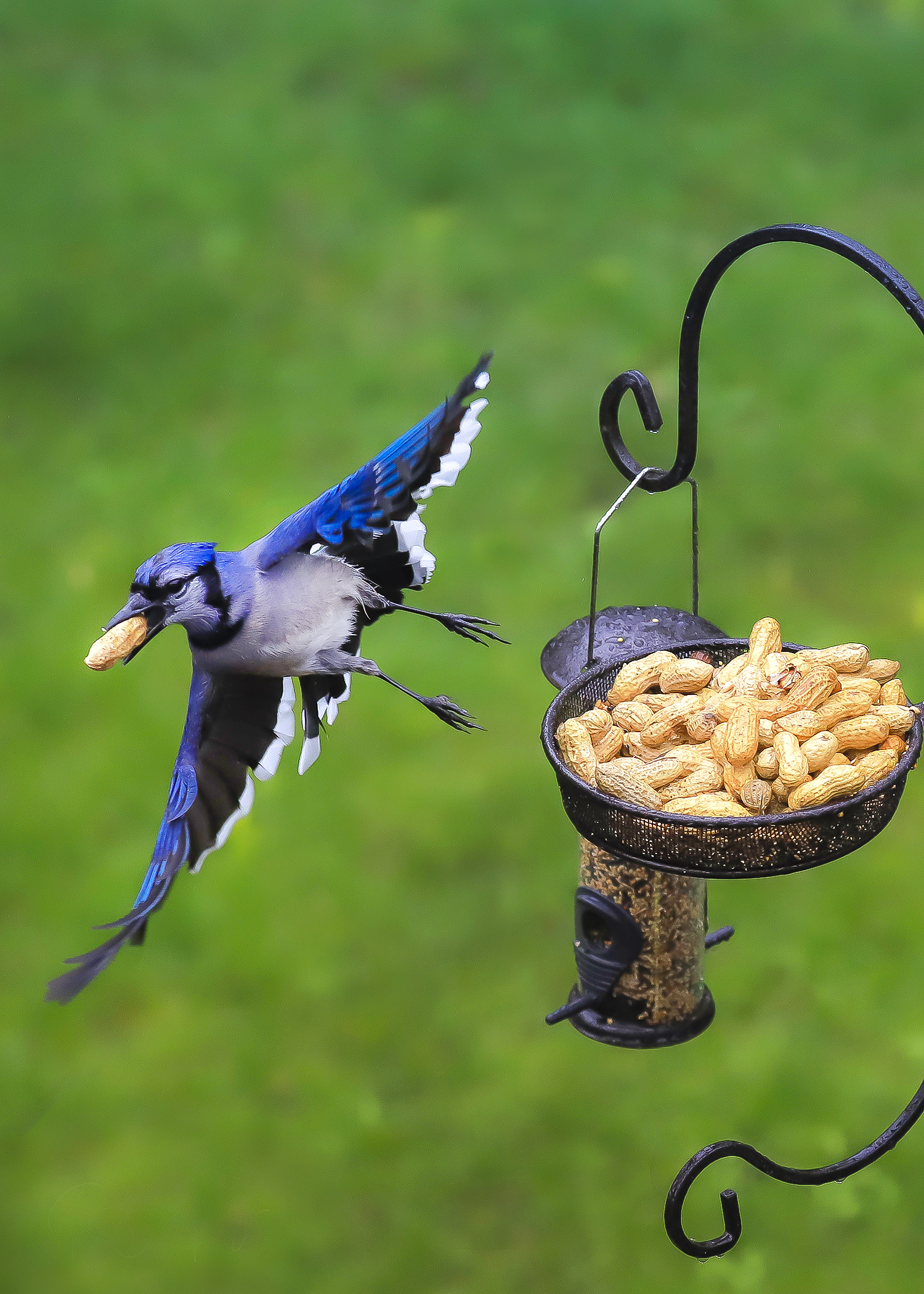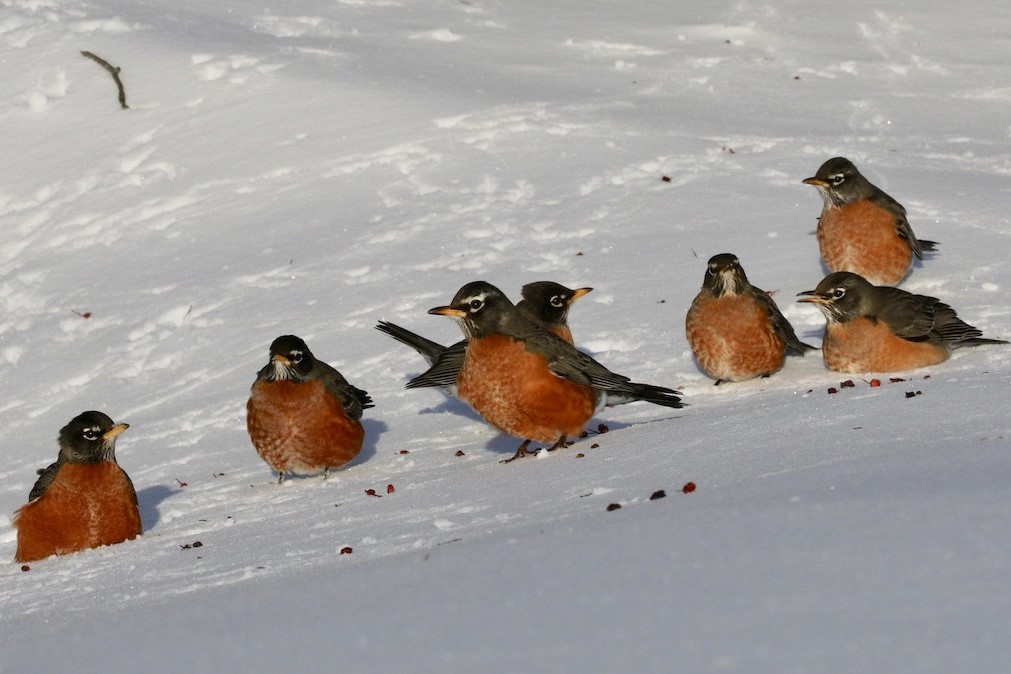By Team eBird Canada
The annual Great Backyard Bird Count (GBBC) is Friday, February 17 through Monday, February 20. The GBBC is a joint program of the Cornell Lab of Ornithology, Audubon and Birds Canada. It was one of the first online projects to collect information on wild birds and was also instrumental in the creation of eBird back in 2002. Now there are more ways than ever to participate and share your love of birds!
If you’re new to birding, participate with Merlin: beginning bird admirers can participate in the GBBC using Merlin Bird ID—simply identify birds and save them with the app anytime February 17-20.
If you’re already eBirding, participate with eBird: go birding for at least 15 minutes anytime February 17-20, count all the birds you see or hear, and enter your observations via the GBBC website or eBird Mobile app. If you haven’t used eBird since the last GBBC, take the free eBird Essentials course for a refresher.
Below are some additional details about this weekend and how to get involved.

Snow Bunting. Photo: Charles Fitzpatrick, Macaulay Library
Connect and celebrate
The 2023 GBBC encourages you to spend time in your favorite places watching birds—and tell us about them! GBBC is a great opportunity to recognize these special places and share them with others.
Do you have a friend or family member you think might be interested in birds? GBBC is your chance to spark a new passion. Encourage loved ones to observe the birds around them during GBBC weekend as well. They can participate in GBBC by using Merlin Bird ID to identify species and even start their Life List right from the Merlin app.

Blue Jay. Photo: Paula Hildy
Build a global snapshot of birds
Unlike other global birding events, GBBC represents a chance to take a 4-day snapshot of bird populations around the world. Everyone who submits an eBird checklist or saves a bird with Merlin Bird ID from Feb 17-20 will be part of the global effort. Help us make the best, most detailed picture possible by following these tips:
Get to know your local birds. Jump-start your GBBC by familiarizing yourself with nearby birds. Merlin Bird ID allows you to build a custom list of birds you’re likely to spot during GBBC wherever you are, complete with photos, example sounds, and identification notes. Tips for exploring nearby birds with Merlin.
Count correctly. A lot of GBBC birding happens in backyards and often at feeders. Be sure to review our article on proper counting protocol at feeders.
Boost the scientific value of your lists. Try these reporting practices so that your checklists have the biggest impact for science: submit ‘complete’ checklists; follow best listing practices; and if a report is flagged, document it thoroughly.
Add photos. If you get nice photos during the GBBC weekend, or anytime, be sure to add your photos to your eBird checklist. This is of course especially important to help document rare birds that you may find. Learn more on how to upload your photos and sounds. We also invite you to share pictures of yourself, family, or friends celebrating the joy of birds during GBBC.
Build a GBBC Trip Report. eBird Trip Reports are a great way to summarize the birds you find during the 4-day GBBC period. Simply create a Trip Report for February 17-20. The observations you contribute through eBird and Merlin will be added to the report automatically. Add friends and family and their GBBC observations will be included in your report as well. Create eBird Trip Reports at any time before or after the count period—you can also make Trip Reports for past GBBCs!

American Robins. Photo: Alvan Buckley
How to follow the GBBC
Follow along with the Great Backyard Bird Count on eBird, where you can filter sightings and recent GBBC checklists by region. You can also submit data here as well. Your My eBird stats will be the same here as they would be anywhere in eBird. The key difference is the Explore page. The output here is tailored for the GBBC, so you can see the following:
- Explore GBBC data by location– Enter any location and see the species list, number of checklists and observers, recent visits, and other information restricted to this year’s count period.
- GBBC species maps – See where and how often each species is found around the world during GBBC. Zoom in and click on the points to see individual records.
- Top 100 for GBBC 2023 – Check out the region-by-region contributions of individuals in terms of both number of checklists and number of species reported.
Drum up support in your local birding community by sharing a link to these statistics on your blog, Facebook page, listserv, or your favorite social media of choice.
And make sure to check in with the eBird Live Submissions Map this weekend. The hottest times to watch this map are likely to be 4-9 pm (Eastern Standard Time or GMT -5) on Sunday and Monday. Our best hour may be 5 pm (EST) on Sunday night when 3000+ checklists are usually submitted.
Have a great time at this year’s GBBC and thank you for being a part of the global eBird team!
